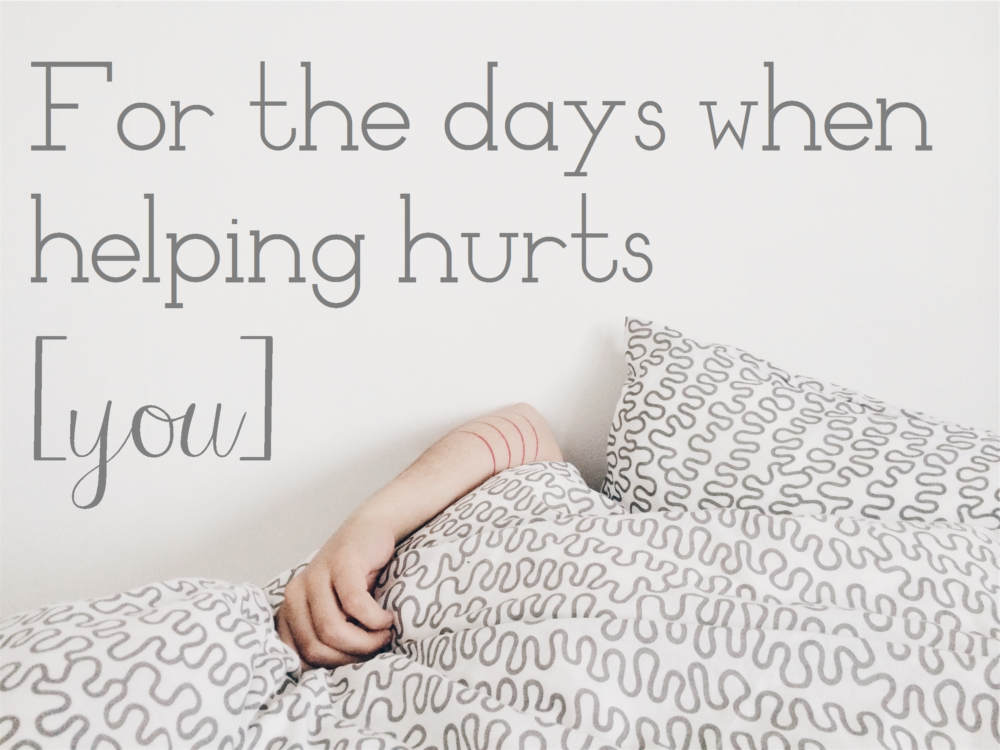I knew last week was going to be killer.
I was stoked for the opportunities, while bracing myself for days of training students 9-5 (and honestly, the three hours of traffic. Yuck). I confess to spending some lunches in the reclined driver’s seat of my minivan, snoozing until my phone’s alarm set me back in full gear.
And it was killer: an incredible chance to take every class at our refugee center through a peacemaking/conflict management training, building on a clear message of what God had done—and is doing—for us in our conflict with Him.
Considering the vast majority had trickled into Uganda from war-ravaged nations, a message of how to make peace practically in all our relationships was, I discovered, diametrically opposed to what many of them had been taught—or were teaching their children—from the time they could speak. Realistically, many emerged from nations that had been in conflict from before they were born. More than one student told me they had never known peace until they moved to Uganda.
What I didn’t anticipate was my own heart twisting inside me like a dishrag.
I didn’t expect the fat tears streaking all those lovely brown cheeks as I spoke about domestic abuse.
I didn’t expect, You say we should forgive my enemies. Al-Shabaab came into my family’s store and shot my brother before my eyes. Are you saying I should forgive al-Shabaab?
Or, The police in my country only help brown people. Not black people.
Or, How can I forgive the man who killed my mother and raped my sister?
Or, I have taught my four-year-old to never, ever forgive. If someone beats him, I want him to beat them back better. Africa is a violent place. I want him to be strong. …I don’t want him to suffer like I did.
I didn’t expect that in all that traffic my own tears would draw my hand to my mouth as I shook my head. So much agony. So very much. In so many of them.
And I believe now more than ever that we need a different Africa than what exists. We need the ceaseless cycles of violence over generations to end here, with these people. With their children. I believe more than ever that forgiving our enemies can only emanate from the Prince of Peace, who forgave me, and them, when we cursed and hated Him.
But can I tell you? It felt daunting, being that white lady from suburbia, imploring them to forgive that person who murdered their father.
And after class, in a deserted classroom save a somber student and myself perched on some plastic chairs, I thought of Simeon’s words to Jesus’ mother.
And a sword will pierce your own soul, too.
My sister, who along with her husband aids refugees in Thailand, is one of my heroes. Her life is filled with a lot of blood and pain that isn’t hers—that she has chosen as her own. I look at her life and think, only God creates this kind of beauty. Only God arms them with strength for these tasks, for hope in the midst of generations of hopelessness. For healing when all you can see is open wounds and scars. She wrote recently,
With Jesus, it is full of potential for a beautiful story. It is just bursting with prospects for sustainable businesses and [B]ible studies and conversations over tea!
But if you take away the hope and Jesus, it’s just crazy.
So some days, when fear sets in, I wonder: what if God chooses not to answer all these prayers for this community? What if all the efforts to show love, well, don’t?
….I could go on. The questions are truly endless, but ultimately end in: what if God isn’t in this, and then it is nothing more than crazy?
I never realized how close Jesus is to crazy.
But I read that “faith is…the conviction of things not seen” in Hebrews 11 and “hope that is seen is not hope” in Romans 8. I start to think that faith and hope and love, to be truly faith, hope, and love must be a wee bit close to what we might call crazy.
Loving others, really loving them—not like a hired hand, but like a shepherd—means you often get really dirty with their stuff.
Crazy, right?
It reminds me of a pediatrician with kids filing into his exam room day after day, wiping their noses on their sleeves, not quite making it to the trash can when they’re sick, or coughing in his face. Loving people who hurt means you get a little hurt on you.
Or a lot. Like Jesus took on my dirt. My junk. My utter sorrow.
Until it killed him.
By this we know love, that he laid down his life for us, and we ought to lay down our lives for the brothers.
But if anyone has the world’s goods and sees his brother in need, yet closes his heart against him, how does God’s love abide in him?
Little children, let us not love in word or talk but in deed and in truth.
I John 4:16-18









3 Comments
sethkempf - 9 years ago
This was really good and helpfully sobering, Janel. Thanks sister. Prayers for your continued strengthening.
Janel - 9 years ago
Thanks so much, Seth. And so grateful for your prayers.
Reflections on a Christmas robbery | a generous grace - 9 years ago
[…] this post? You may like When Helping Hurts [You] Part I and Part 2, Wonders of His Love, and 9 Practical Ways to Savor the Christ in Your […]